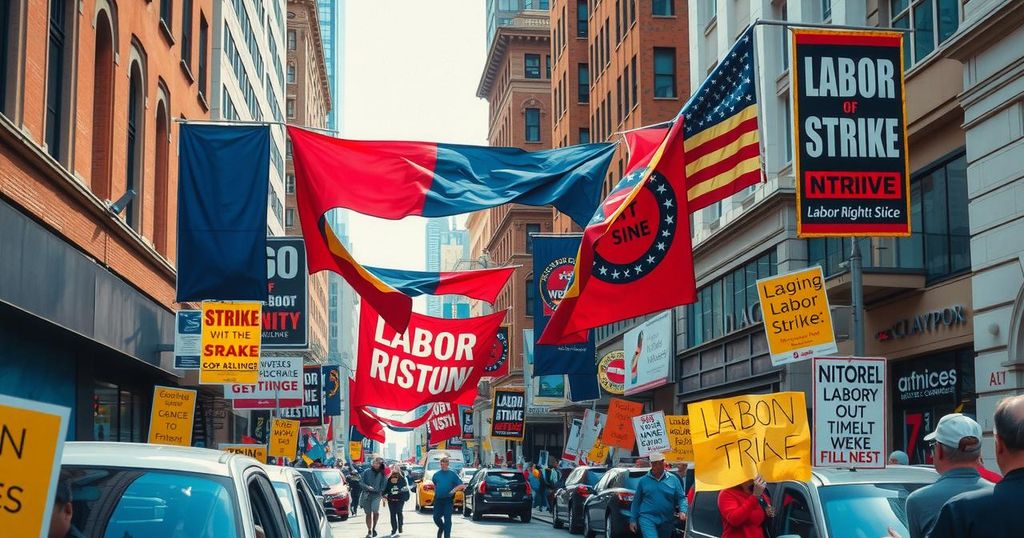Colombia’s unions launched a 48-hour strike supporting President Petro’s referendum for labor law reform. This follows repeated Congressional rejections of his proposals. Protesters are expressing discontent over alleged legislative failures, with significant mobilization in major cities. If Congress doesn’t act again, Petro plans to authorize the referendum through a decree, amidst increasing political tensions as he eyes reelection.
Colombia is currently witnessing a significant labor response to President Gustavo Petro’s push for a referendum aimed at reforming the country’s labor laws. On Wednesday, labor unions initiated a 48-hour strike to rally support for the referendum, which seeks to empower voters in deciding key aspects of these regulations. This has drawn a direct response from President Petro, who claims that Congress has repeatedly thwarted his efforts to enact essential reforms, thus contradicting the interests of the working class.
The referendum questions could potentially limit workdays to eight hours, a proposal that has intensified the existing conflicts between the executive and legislative branches of the government. After Congress previously rejected Petro’s labor reforms twice, most recently in March, a referendum proposal was forwarded on May 1, suggesting twelve pivotal questions to be put to voters. However, two weeks later, the legislature voted narrowly, 49-47, against this measure, prompting Petro to accuse the lawmakers of fraudulent practices and inciting workers to demonstrate in favor of reform.
Fabio Arias, the president of the United Workers’ Central, emphasized the situation, stating, “We are telling the Senate that it cannot continue legislating against the working class.” He believes that the passing of the referendum is essential to restoring workers’ rights. The union aims to mobilize at least three million workers for the strike, underscoring the widespread discontent among labor groups about the recent legislative actions.
Strike activities have been observed across Colombia’s major cities, with notable protests in the capital, Bogota. According to the mayor’s office, some demonstrators obstructed public bus lanes, causing significant delays for thousands. Yeimy Cante Toro, a member of one union representing NGO workers, expressed her motivation for participating, saying, “I’m mobilizing because I feel that my rights have been violated.”
On the eve of the strike, Interior Minister Armando Benedetti noted that if Congress does not reconsider the referendum, the president intends to issue a decree on June 1 to authorize it unilaterally. There’s a growing narrative that President Petro’s clashes with Congress have become pronounced since he took office in 2022, as he looks to strengthen his political legacy ahead of the upcoming elections next year. Petro, being Colombia’s first leftist president, is indeed considering reelection.
Political analysts highlight that Congress’s repeated rejection of the labor reform provides Petro with an unintended opportunity to reshape the political conversation. Mauricio Velásquez, a political science professor from the University of Los Andes, stated, “Congress gave the government a lifeline at a moment of great weakness by rejecting the labor reform.” He believes it opens a pathway for Petro to leverage legislative failures as a means of energizing the political atmosphere.
In summary, Colombia’s labor unions have mobilized for a 48-hour strike advocating for President Gustavo Petro’s proposed referendum aimed at reforming labor laws. Despite Congress rejecting his reforms multiple times, the president is determined to push forward, suggesting that he may issue a decree if lawmakers do not act. This ongoing clash highlights the political tensions between Petro and Congress, emphasizing the president’s strategy to rally popular support while paving the way for potential reelection.
Original Source: www.independent.co.uk






